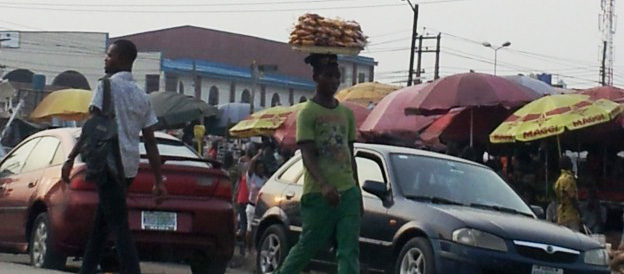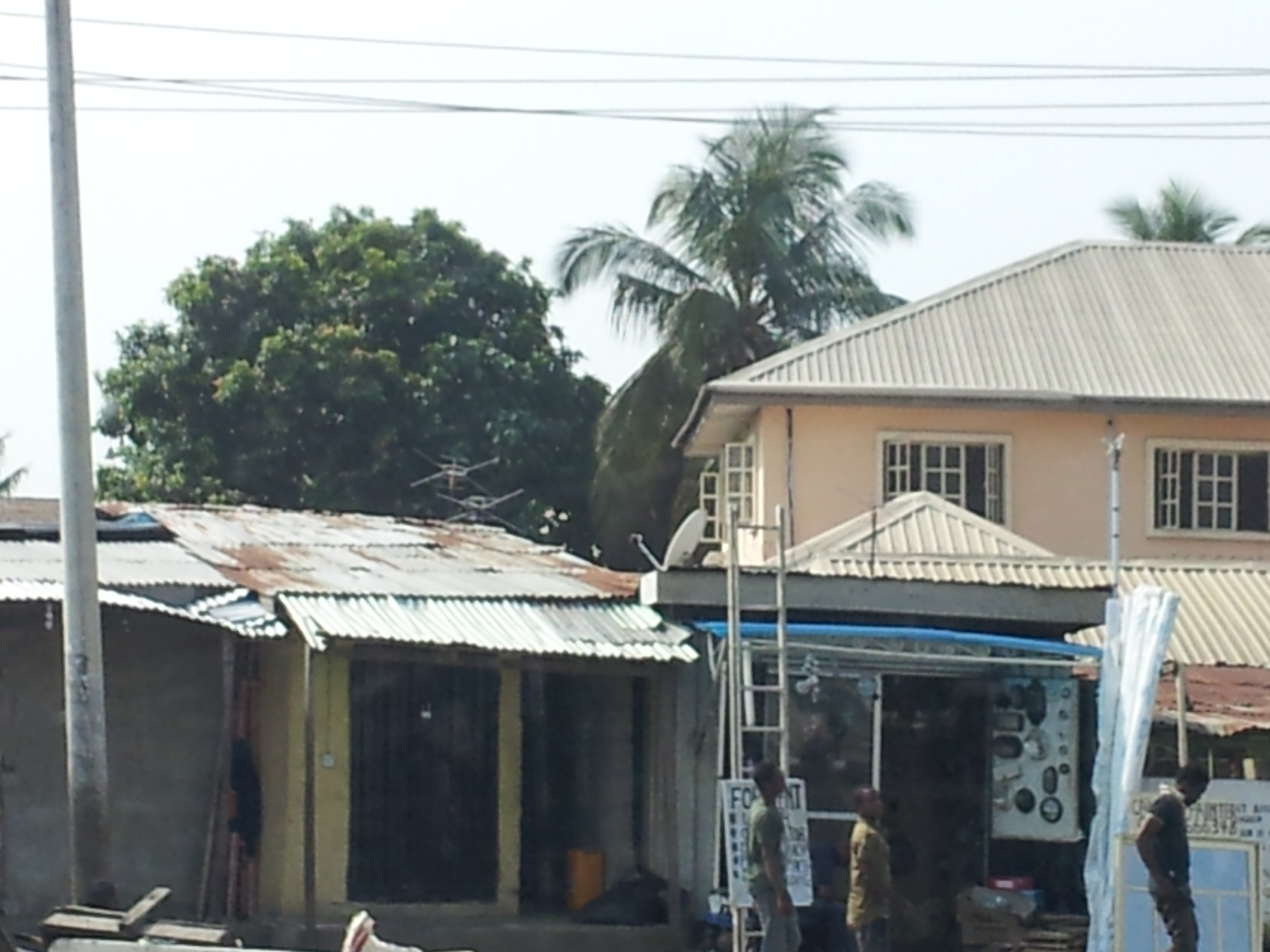
I have the opportunity to observe Lagos street vendors in action on my daily ride to school. At one round-about which is particularly jammed, dozens of them offer drivers all and any kind of products: ceiling brushes, soft drinks, clocks, CDs, flip-flops, chewing-gum, underwear, posters, soccer team flags (including that of Barça F.C.), magazines, windshield wipers, you name it, and they’ve got it.
At the next roundabout, fruits and other food items are most popular. To the casual observer, this looks like a random, non-organized activity. Yet, as it turns out, street vendors are one link in the traditional distribution system.
After a few days observing vendors and their activity, I started wondering “Where do they get the items for sale? Are these defective items that they can sell at a lower price? What’s going on here…?” I learned a bit about street vendors’ organization from Uchenna Uzo – a “Prof” (as they call professors here) in the Marketing Department at Lagos Business School:
- Some vendors operate when there’s traffic, others at rush hour, and still others at quiet time; some operate in the morning, others in the evening.
- As everywhere else, location is a critical choice that depends not only on how the traffic is at that location but also on the types of shops that are also part of the traditional distribution system in the area.
- Traffic volume, time, and location drive product offering.
- The price charged depends on the time of the day, and even the season of the year.
- Some vendors are independent; others work for a master, likely the owner of a near-by traditional shop; some even are shop-owners.
- The proximity to the consumer is highly valued by producers of fast consumer goods, who rely on street vendors as an important distribution channel.
- The advertising opportunity is valued as well, especially for products, like tobacco, can’t be advertised otherwise.

Are street vendors part of the formal, traditional system or of the informal one? It’s unclear: Some are taxpayers while others are not registered, and may or may not work for a master who is a taxpayer. A report by Bain indicates that traditional trade represents more than 80% of formal retail across Africa, and that the informal economy is estimated to represent 30% to 60% of the GNP in selected African countries . Can street vendors be ignored?
I will be flying to New York tonight, so it may take me a while to get back to your comments. In NYC, I will participate in the Academy of Management Discoveries editors’ board meeting. AMD is a new journal that will be launched in 2015, and we’re working in making it happen.


Africa, when I read your post, I had an immediate flash. Why should we change something that it is working well? Is there only one good way to do things? Maybe it is better to observe reality and then do not interfere in what is working well. Europe and Africa are very different, we do not need the same models.
This is a good question, Patricia. And I think there’s food for thought here. Professor Uchenna Uzo is planning to start a research project to get to understand better how this traditional distribution system works. Foregin retailers are starting to enter the Nigerian market. Shoprite is a supermarket chain from South African which is here already. It’s targetting the mid-upper class.